|
By: Cheyenne Taylor Robert Ingersoll, an American lawyer and writer, once said, “We rise by lifting others.” Today, we want to discuss the ways we can help uplift survivors of sexual assault. We can start by changing the way society speaks about survivors. Common myths about sexual assault are harmful to survivors and can prevent them from getting the help and justice they deserve. These myths include beliefs that survivors “got what they deserved” or that they were “asking for it.” These thoughts are communicated through questions like, “What were they wearing,” “What were they doing,” or “Why did they drink so much?”
The truth is these types of questions focus on the wrong person. When a stabbing occurs, we never turn to the stabbing victim and question what they were wearing to make themselves more at risk of getting stabbed. We know that it is not our place to question survivors, and there is no justification for causing this harm. However, when speaking about sexual assault survivors, we assume they are lying – even though less than 2% of people are reported to have lied about sexual assault1. We also focus on questioning the survivors instead of questioning those who sexually assault people. Survivors are shamed so much that many do not report their perpetrators and many perpetrators go free. In fact, only 5 out of every 1,000 perpetrators will end up in prison2. Survivors feel so much shame for being sexually assaulted, but we can work together to take away those feelings of guilt. Instead of questioning survivors about their actions and what they did to “deserve” trauma that nobody deserves, we can show support to these survivors. We can offer support by using phrases like “It took a lot of courage to speak about this,” “It’s not your fault,” or “You are not alone. I am here to help.” We can also continue to check-in with them and give them the time to grieve and heal from their experiences. We should also validate their decisions. Listen to them without judgment and encourage them to make the best decision for themselves and their health. Additionally, we can suggest local resources to help the survivor. Beacon of Hope Crisis Center offers free services like protective order filing, safety planning, employment and financial assistance, emotional support, referrals for housing, jobs, and much more. Our victim advocates are here to support you. Speak with a victim advocate by calling our confidential crisis line at (317) 731-6140. If you are in immediate danger, please call 9-1-1. By: Cheyenne Taylor This year has been a difficult and trying year for many due to the impact of the pandemic, especially victims of domestic violence. While the world has been focusing on the pandemic, domestic violence has only escalated behind closed doors. It has not taken a break despite this pandemic. For victims, the pandemic has only created additional barriers in accessing services. We want to take this time to emphasize that we are here for all victims facing domestic violence victimization. We serve all.
We offer services that are accessible even during this pandemic. We have language services to help with translation needs. If you identify as a part of the LGBTQIA+, we serve you, and we have referrals as well. If you are atheistic or follow another religion, we are still here for you and respect your religious practices. We will not refuse to serve anyone because of race, gender identity, or other identifiers. We believe that everyone deserves to live free from the grip of domestic violence. Here are a few ways you can seek our help. First, you can call us directly at 317-731-6140 to speak confidentially with a victim advocate. Our advocates are on the lines from 8:30 am to 1 am. If we cannot pick up, please leave a detailed voicemail with your name, a return safe contact number or email, times to return your call and we will reach back out as soon as possible. Second, you can contact us through social media DMs. Facebook will get the quickest response, but you can reach us at any site easily accessible to you. Lastly, you can email us at info@beaconofhopeindy.org and we will get back in touch with you as soon as we can. Make sure to visit our website at BeaconOfHopeIndy.Org to learn about all our free services and resources that we offer. We are here to help you! We recently received an emergency grant from The Allstate Foundation to help us continue to serve survivors of domestic violence during the pandemic. These funds have helped us to continue to provide our essential services to those dealing with often unfathomable trauma. Our grant was awarded as part of $500,000 in emergency grants provided by The Allstate Foundation to help more than 100 domestic violence organizations to provide necessary relief as the need for domestic violence services continues to rise.
Survivors may be isolated with abusers and cut off from social support systems. Check in with your friends and loved ones often through calls, email, or video chats. It is important to be there for one another and listen for warning signs of abuse. If you or someone you know is experiencing domestic violence or sexual assault, please consider calling to speak with an advocate. Victim advocates can offer information and guidance on next steps, call today (317) 731-6140. If you are in an emergency, please call 911. Red Flags of an Abuser:
Giving back to your community is always an amazing idea, but getting started can sometimes be tricky. We suggest supporting survivors. Beacon of Hope Crisis Center is a local nonprofit organization that serves ALL individuals facing domestic violence or sexual assault. Donations will directly benefit victims in central Indiana by providing services and resources such as safety, education, financial assistance, and counseling at no cost to our clients. Below are two ways you can become a donor and ally to survivors. We hope you consider joining us in the fight to end domestic violence and sexual assault.
AmazonSmile: AmazonSmile is a simple and automatic way for you to support your favorite charitable organization every time you shop, at no cost to you. When shopping with AmazonSmile you’ll find the exact same low prices, vast selection, and convenient shopping experience as Amazon. The added bonus is that Amazon will donate a portion of the purchase price to an organization of your choice. To support survivors receiving services at our agency, please choose Beacon of Hope Center for Women, Inc. / Beacon of Hope Crisis Center as your organization to support.
Kroger Community Rewards Kroger is committed to helping our communities grow and prosper. Kroger Community Rewards makes fund-raising easy! All you have to do is shop at Kroger and swipe your Plus Card! If you are looking for unique ways to donate to local organizations, enroll for your rewards to benefit and support Beacon of Hope Center for Women, Inc. / Beacon of Hope Crisis Center. Click here to enroll: www.kroger.com/account/enrollCommunityRewardsNow By: Katie Schneider Domestic violence and sexual assault can cause lifelong negative impacts on a victim’s mental and physical health. Victims that are in marginalized communities face more barriers to accessing services than those who do not. A marginalized community is a group of people who for whatever reason are denied involvement in mainstream economic, political, cultural and social activities. [1] They tend to be underserved when it comes to receiving services for domestic violence and sexual assault. People who are living with trauma from domestic violence and sexual assault within these communities may be scared to turn to those that can help them (community resources or law enforcement).
Beacon of Hope Crisis Center breaks down barriers by offering services to everyone that walks through our door or calls our crisis line. We work alongside community partners to provide language services, refer clients to free legal assistance, safe housing, and much more. Training our advocates to be culturally aware and helping to make survivors feel as comfortable as possible in times of healing. Beacon of Hope Crisis Center also provides services at no cost to any of our clients. Free and completely confidential. This way there is no economic barrier to receiving services either. Our Economic Sustainability Program aims to empower survivors to become self-sufficient and financially independent after experiencing abuse. Domestic violence and sexual assault alike do not discriminate against race, gender, sexual orientation, religion, citizenship status or any other demographic. It can happen to anyone. No one deserves to live in the grip of domestic violence or sexual assault. Abuse is never the victim’s fault. Beacon of Hope Crisis Center serves ALL individuals seeking assistance after domestic violence or sexual assault victimization. Call our confidential and toll free crisis line to speak with an advocate. Crisis Line: (317) 731-6140. [1] https://yali.state.gov/five-ways-to-be-an-ally-to-marginalized-groups/ -groups/ By: Savannah Tipton History gives us reference to the work advocates are doing in 2019. There was a time, not too long ago, where victims of domestic violence had almost nothing available for support. Before the 1970s due to there being no shelters, self-identified advocates would let fleeing victims into their homes (1). Those brave advocates were the foundation for shelters nationwide. There was little research and bias clouded the minds of many professionals. In fact, many medical professionals didn’t recognize the health risks associated with domestic violence. According to Time Magazine, an article in the issue “Sept. 25, 1964 — highlights a mind-boggling study that concludes couples stay in abusive relationships because their fighting can “balance out each other’s mental quirks (2).”” Society’s view of domestic violence directly impacted a victim’s ability to find external support and break free from an abusive relationship.
Today, domestic violence agencies are open across the United States offering programs that empower survivors to build a life free from the grip of domestic violence. Medical professionals now recognize the danger of domestic violence and are learning more about risks associated with strangulation. The National Domestic Violence Hotline explains ““Strangulation” is defined as “It’s possible to experience strangulation and show no symptoms at first but die weeks later because of brain damage due to lack of oxygen and other internal injuries. For this reason, and for a safe way to document the abuse, we strongly recommend you consider seeing a doctor if your partner has strangled or choked you.” These referrals to see a doctor have saved countless lives. There is more work to do but we are well on our way to offering the support ALL survivors deserve when escaping domestic violence. Domestic Violence Milestones (3)
The work victim advocates do at Beacon of Hope Crisis Center is directly impacting the lives of families across Central Indiana including victims fleeing from out of state. If you or someone you know needs help dealing with domestic violence and/or sexual assault, call our confidential crisis line at 317-731-6140. If you are in an emergency, please call 911. By: Savannah Tipton Sexual assault often results in no physical injuries to the victim, but this doesn’t make their experience any less traumatic. After an assault, victims may experience significant short-term and long-term effects.
Effects of Sexual Assault:
Sexual assault is often perpetrated by someone the victim knows (acquaintance, friend, family, etc.). The majority of assaults occur at or near a victim’s home (RAINN). Many of us were taught about “stranger danger” in the past and some people may still believe that no one they know “could do something like that.” Unfortunately, we do not get to live in a world free from danger. However, together we can raise our voices to make a change. Start by believing survivors. If someone discloses they have been sexually assaulted, listen and believe them. If they disclose shortly after an assault, encourage them to get an exam done at the hospital. Sexual assault exams are done for free in Indiana and an experienced SANE nurse (Sexual Assault Nurse Examiner) can collect evidence that may not be available later on. This is also an opportunity for survivors to get medical care, testing, and ongoing support. Referring survivors to community resources is another way to help and you can encourage them to speak with a victim advocate. Victim advocates offer free support, education, and community referrals. Advocates can also answer questions about protective orders and reporting to law enforcement. Want to get more involved? Get out in the community and start volunteering! There are a variety of volunteer opportunities to help survivors near you. Volunteers opportunities generally include fundraising, events, volunteer advocacy, and more. Visit the career tab to learn more about volunteer and internship opportunities at Beacon of Hope Crisis Center. Finally, show survivors you stand with them as an ally by sharing resources, statistics, and other information from services providers. The simple act of sharing a post has the potential to reach someone who may need help. Your voice has power, use it to support survivors. #AllyToSurvivors If you or someone you know is a victim or survivor in need of services, please contact our confidential crisis line at 317-731-6140. Advocates are a confidential source of support available to help survivors. By: Savannah Tipton Society has typically associated feelings of grief to the death of a loved on. We can understand that someone may have difficulty processing the death despite the circumstance (illness, accidents, etc.). When we expand the definition of grief to include other things that are lost, society gives less acknowledgement or validation. Survivors of domestic violence may experience grief over lost self-esteem, loss of their home and the life they knew, or even the future they once planned for. They may experience this grief during and after the relationship has ended. There are many reasons survivors do not disclose abuse (humiliation, fear, guilt, shame) and this can further complicate feelings of grief. Survivors need access to support as they start their healing journey. Some may find support from friends and family while others turn to professionals.
To better understand the connection between grief and domestic violence, we must first look to all that a survivor of domestic violence may lose or leave behind after being victimized (see below). Together we can become more educated and give survivors validation to grieve or mourn all that they have lost. Advocates are available to validate feelings of grief and connect clients to supportive services and free counseling. Confidential Crisis Line: (317) 731-6140 Losses Which Are Grieved
By: Marty Burtt Beacon of Hope Crisis Center’s Foster Pet Program eliminates a very common barrier for domestic violence and/or sexual assault victims. Research has shown that 48% of battered women will delay leaving their abuser because they fear what will happen to their pet(s) after they leave. Pets are a common tool used by abusers to control the victim by threatening, harming, or killing the pet. Our Foster Pet Program gives domestic violence and/or sexual assault victims a temporary, safe home for their furry family members while they work on becoming self-sufficient.
Our volunteer foster families have the unique opportunity to provide much needed help to victims of domestic violence and/or sexual assault. Instead of having to choose between leaving their beloved pet with their abuser, or surrender the pet to a shelter, victims can apply for our program and know that their pet is being loved and cared for until it can come back home. Being a foster family offers the companionship of having a pet, without the lifelong commitment. Every year, 68% of abused women report violence towards their pet from their abuser. Our foster families can give love and affection to pets that have experienced their own trauma. If you are interested in learning more about the program or signing up to become a foster family, please click here. By: Marty Burtt Beacon of Hope Crisis Center’s Foster Pet Program is a unique service that we are proud to be able to offer to our clients. Family pets offer a sense of stability, comfort, and unconditional love that creates a special bond between a family and their pet. In homes with domestic violence and/or sexual assault, the family pet is at a high risk of being abused and/or neglected. Over 71% of battered women reported that their batterers had harmed, killed, or threatened animals to coerce, control, and humiliate them*. Additionally, numerous surveys have reported that 25% to 40% of battered women report they delayed their decision to seek safety out of fear for their animals’ welfare**. Our Foster Pet Program helps protect pets in homes where violence is happening by placing them in a temporary, safe home until it is safe for them to be back with their family.
Our Foster Pet Program gives victims peace of mind in knowing that their pet/s is safe. Our Foster Pet Program Coordinator (FPPC) gets weekly updates from the foster family on the pet/s and how the pet/s is doing and then provides that update to the victim. The FPPC is in consistent communication with everyone involved with the pet/s. We are always excited when victims have secured a safe home and can safely be reunited with their pet/s. This program is available to any victim of domestic violence and/or sexual assault that is fleeing their abuser, as well as victims that are receiving services from other agencies. Beacon of Hope Crisis Center has recently launched the Central Indiana Pet Abuse Link Task Force to help keep Indiana pets safe. The Pet Abuse Link Task Force is comprised of individuals within the community that share our passion for keeping pets safe. Learn more about our Foster Pet Program here. *Ascione, Weber & Wood, 1997 **McIntosh, 2002 |
About this blog
This blog is about our domestic and sexual violence crisis center, Beacon of Hope. We hope you find it full of helpful information, motivation, creativity, serious facts and positivity. We hope that it will help you know what is happening in our center, in our community and with our events. We hope you follow our blog in support of our organization and our mission. Archives
October 2024
Categories
All
|
|
CAREER opportunities © 2024 Beacon of Hope Crisis Center Privacy Policy Accessibility Statement Training Portal Login |


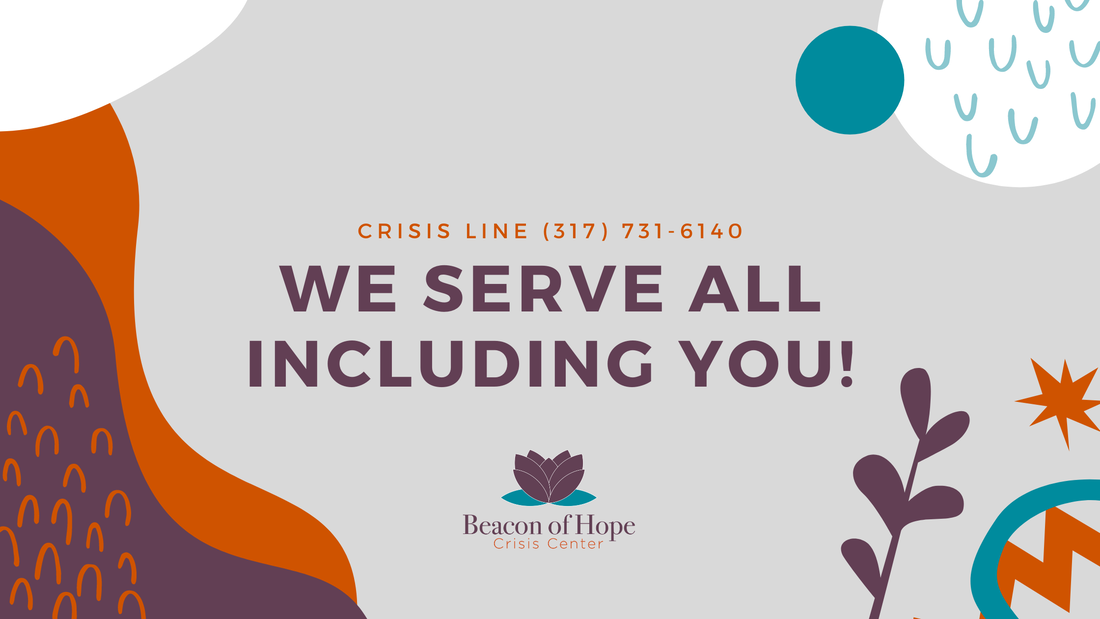


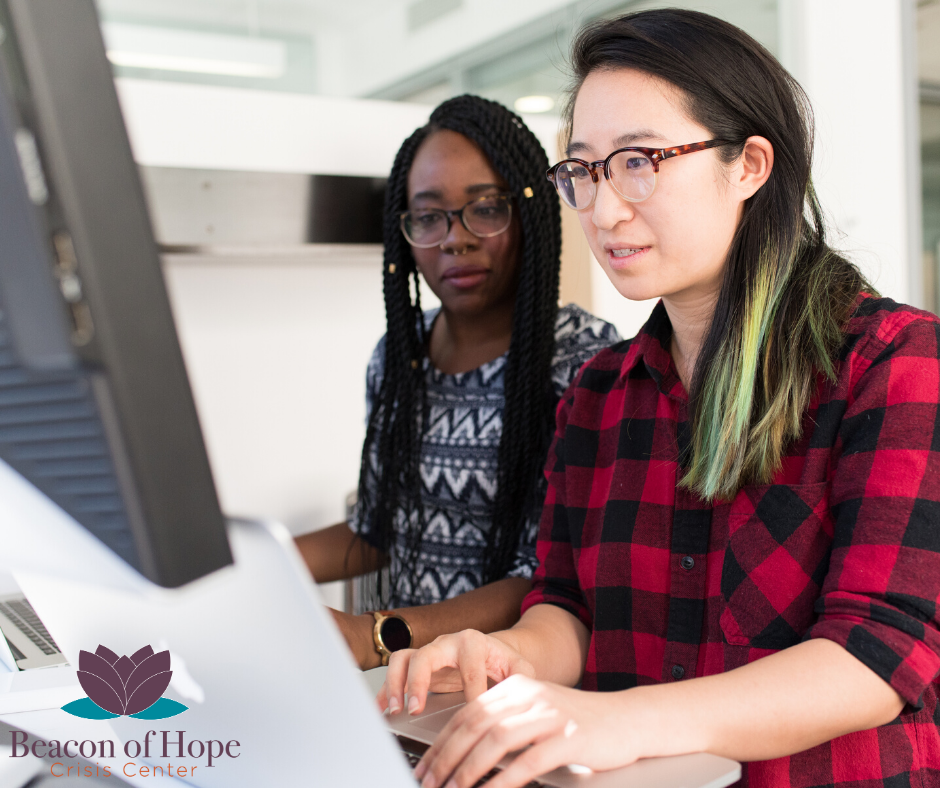
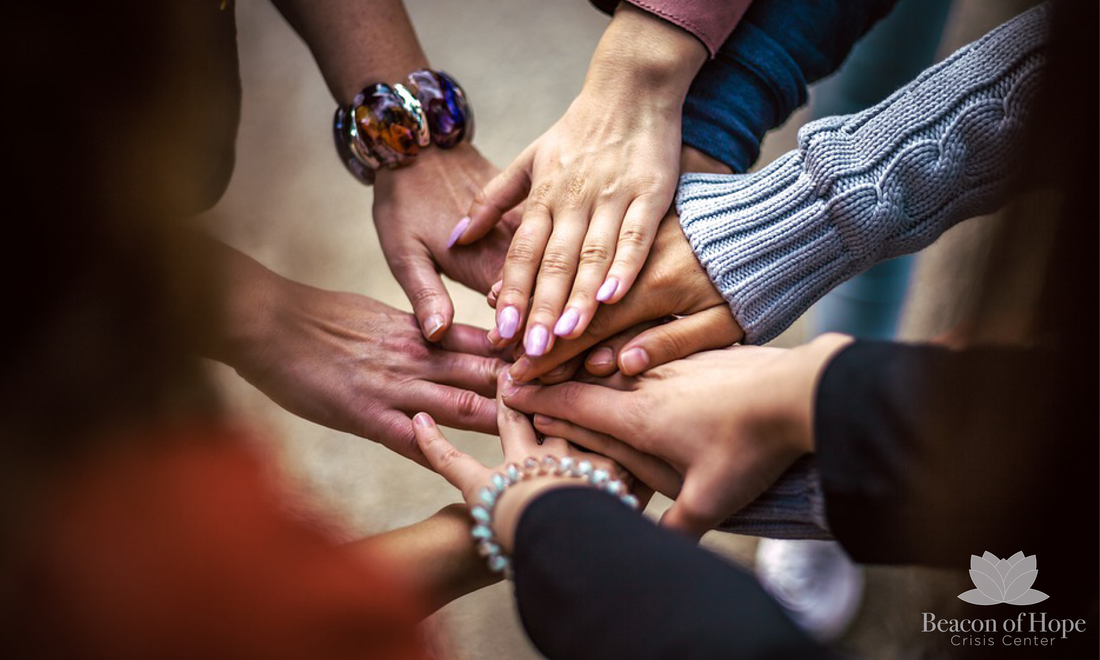
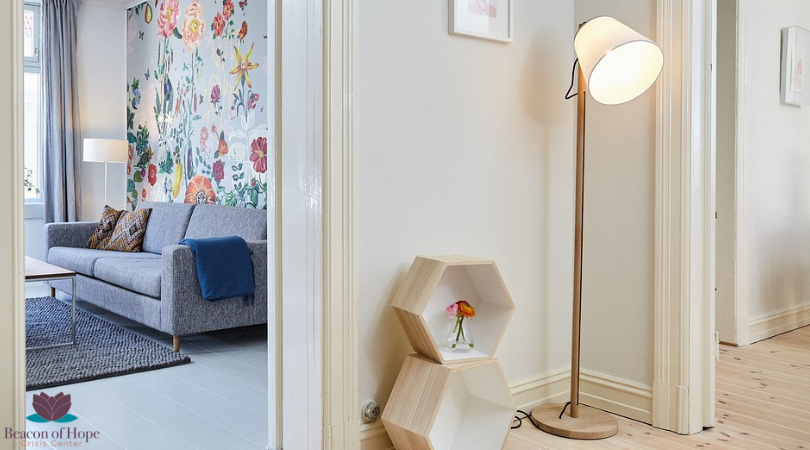
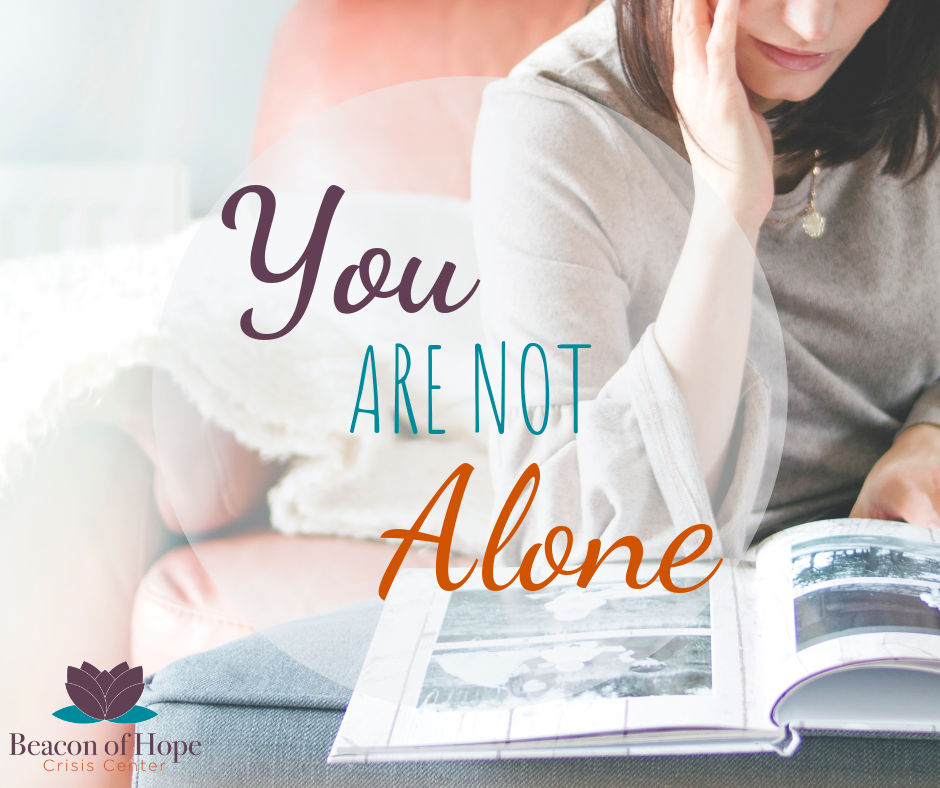




 RSS Feed
RSS Feed